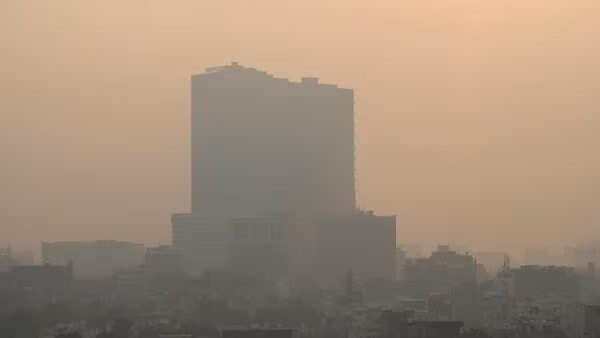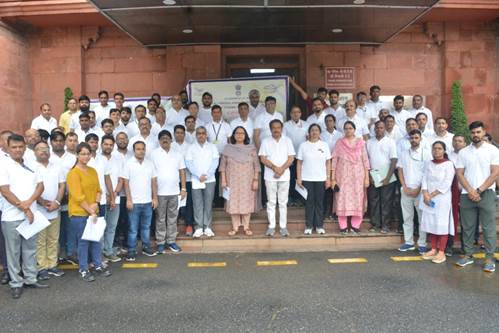On December 16, 2024, the Commission for Air Quality Management (CAQM) imposed Stage 4 restrictions in Delhi-NCR as the Air Quality Index (AQI) surpassed the 400 mark, signaling hazardous air quality. These measures come amid adverse weather conditions that contributed to a significant buildup of pollutants.
 The 24-hour average AQI for Delhi reached 379 by 4 PM on December 16, and it crossed 400 by 10 PM. Calm winds and an inversion layer—where warm air traps cooler air below—contributed to a lack of pollution dispersion, prompting the imposition of Stage 4 restrictions. These were introduced just hours after Stage 3 measures were enacted earlier in the day.
The 24-hour average AQI for Delhi reached 379 by 4 PM on December 16, and it crossed 400 by 10 PM. Calm winds and an inversion layer—where warm air traps cooler air below—contributed to a lack of pollution dispersion, prompting the imposition of Stage 4 restrictions. These were introduced just hours after Stage 3 measures were enacted earlier in the day.
What’s Open and Closed Under Stage 4 Restrictions?
- Schools: Classes for students in grades VI-IX and XI will be conducted in a hybrid mode (both online and offline), except for students in classes X and XII, who will continue physical classes.
- Offices: Public, municipal, and private offices are required to operate with only 50% of staff present on-site, with the rest working from home.
- Construction Activities: A ban has been placed on all construction and demolition activities, including public projects like flyovers, highways, and pipelines.
- Trucks: Non-essential trucks, particularly those running on diesel, are prohibited from entering Delhi.
- Public Transport: In addition to the restrictions on private vehicles, state governments may implement further measures, such as restricting vehicle use through an odd-even system.
Stage 4 of the Graded Response Action Plan (GRAP) is implemented when the AQI exceeds 450, marking the most severe level of pollution. The national capital has frequently faced such challenges, especially in winter when the air quality worsens due to various factors, including vehicle emissions, crop burning, and firecrackers. The city’s air is often described as equivalent to smoking up to 10 cigarettes a day, posing severe health risks.
Prolonged exposure to such high pollution levels can exacerbate respiratory issues like asthma and bronchitis, and significantly increase the risk of cardiovascular diseases. Medical professionals warn that residents should take precautions and limit exposure to outdoor air during these conditions.
The GRAP system categorizes pollution levels into four stages:
- Stage I: Poor (AQI 201-300)
- Stage II: Very Poor (AQI 301-400)
- Stage III: Severe (AQI 401-450)
- Stage IV: Severe Plus (AQI above 450)
The GRAP Stage 4 restrictions were first imposed in November 2024 due to sustained high pollution levels. Although the restrictions were relaxed in early December after air quality improved, they have now been reintroduced due to the worsening conditions.
As the winter season progresses, the government continues to monitor air quality closely, adjusting restrictions as needed to protect public health.




